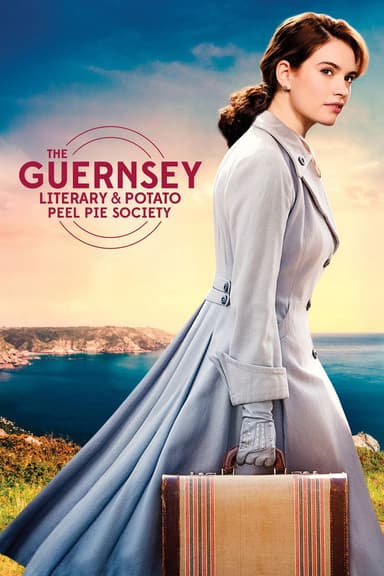
The Exception
2017 • Drama, Romance, War • R
Nothing is as it seems in this riveting World War 2 thriller as a wary soldier goes to investigate a mysterious German monarch at his secluded mansion, leading him into a web of deceit and a dangerous love affair with a local Jewish woman.
Runtime: 1h 47m
Why you should read the novel
If you are captivated by complex historical settings and beautifully rendered characters, Alan Judd’s novel “The Kaiser's Last Kiss” offers a richer, deeper experience than the film adaptation. The novel delves into the nuanced perspectives of its protagonists and presents a detailed backdrop of wartime Europe, with expertly crafted prose that invites readers to plunge into the emotional turmoil and moral ambiguities the characters face. You will discover layers of history, emotion, and philosophical questioning that simply cannot fit into a two-hour film.
Reading the source material provides access to the inner thoughts and motivations of its characters, particularly Stefan Brandt and Mieke, in a way that cinema cannot achieve. Judd’s exploration of loyalty, love, identity, and duty is achieved through intricate narration, allowing readers to piece together subtleties often lost in screen adaptation. The book brings a deeper understanding of historical consequences and human resilience through carefully presented interactions and reflective internal dialogue.
Additionally, “The Kaiser's Last Kiss” offers vivid historical detail and a setting that readers can slowly immerse themselves in, gaining more insight into the complexities of the era. For those who value history and literary craft, the novel is a rewarding and thought-provoking journey, promising a richer intellectual and emotional involvement than the brief, visual storytelling of the movie.
Adaptation differences
One primary difference between “The Kaiser's Last Kiss” and its film adaptation, “The Exception,” lies in tone and thematic emphasis. The film tends to amplify the romantic and suspense elements, focusing more on the budding relationship between Brandt and Mieke, while the book spends more time exploring the political and philosophical dilemmas facing its characters, particularly concerning the former Kaiser’s position in exile and the shifting loyalties of those around him.
The characterizations of Mieke and Brandt also undergo significant changes. The novel provides considerable detail into their psychological profiles through internal monologue and backstory, making their connection more complex and their motives clearer and more ambiguous. In contrast, the film often simplifies their arcs and motivations for the sake of narrative pacing, sometimes glossing over the ethical conflicts and subtle interactions that drive the story in the novel.
Another major difference is how the supporting characters, especially Kaiser Wilhelm II, are portrayed. In the novel, he is depicted with more nuance, given to bouts of reflection, vulnerability, and conflicted allegiances, which are more fully fleshed out compared to the film’s more caricatured approach. The book delves into his lifestyle, day-to-day activities, and the poignancy of his exile in much greater detail, offering the reader a more well-rounded view of his character.
Finally, several plot points and story resolutions are either condensed or altered in the film to provide a more dramatic and satisfying conclusion, often departing from the more ambiguous, morally complex ending of the source material. The book invites readers to linger on the uncertainties and unresolved tensions faced by its protagonists, creating a more haunting and intellectually stimulating finale than the film's more conventional narrative closure.
The Exception inspired from
The Kaiser's Last Kiss
by Alan Judd










